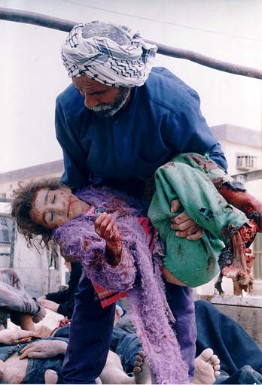See other Dead Constitution Articles
Title: BUSH UNVEILS PLAN TO TACKLE GLOBAL CORRUPTION - Bwahahahahahahahaha!!!!!!!!!!
Source:
Reuters
URL Source: http://www.washingtonpost.com/wp-dy ... 006/08/10/AR2006081001249.html
Published: Aug 10, 2006
Author: Staff
Post Date: 2006-08-10 19:22:41 by Uncle Bill
Keywords: Bush, Most, Corrupt
Views: 136
Comments: 9
Reuters WASHINGTON (Reuters) - President George W. Bush launched a new global campaign on Thursday to combat kleptocracy, or rampant government corruption, which he said undermines democracy and development in poor countries. "Kleptocracy is an obstacle to democratic progress, undermines faith in government institutions, and steals prosperity from the people," Bush said in a statement. Bush's National Strategy To Internationalize Efforts Against Kleptocracy follows the agreement by the Group of Eight powers at their summit in St. Petersburg, Russia to coordinate legal and financial policies to fight corruption. "Our objective is to defeat high-level public corruption in all its forms and to deny corrupt officials access to the international financial system as a means of defrauding their people and hiding their ill-gotten gains," Bush said. State Department official Josette Shiner told reporters U.S. government agencies would work with foreign counterparts to detect kleptocrats, deny them access to financial systems, recover and return stolen funds and prosecute officials. The goal of the policy is to "block, at every level possible, their ability to take those monies and to store them for their own personal use or expend them for their own personal use," said Shiner, undersecretary of state for economic, business and agricultural affairs. She declined to name officials who were being targeted under the strategy, but in response to a reporter's question about North Korean state counterfeiting and smuggling, said: "North Korea is a particular issue of concern on many fronts." A State Department document issued on Thursday identified former presidents Saddam Hussein of Iraq, Arnaldo Aleman of Nicaragua, Sani Abacha of Nigeria and Alberto Fujimori of Peru as examples of kleptocrats who stole massive state funds. Deputy Assistant Attorney General Matthew Friedrich, cited recent U.S. efforts against corruption, including an order by Bush in June freezing assets of officials in Belarus and the conviction of former Ukraine Prime Minister Pavel Lazarenko in a San Francisco for money laundering and wire fraud. In 2004, the United States returned more than $20 million connected to illicit activities by Fujimori and his associates, Friedrich said.  Bush unveils plan to tackle global corruption
Bush unveils plan to tackle global corruption
Thursday, August 10, 2006; 5:26 PM 
Post Comment Private Reply Ignore Thread
Top • Page Up • Full Thread • Page Down • Bottom/Latest
#1. To: Uncle Bill (#0)
Yes, let's all ask Leo Wanta about government kleptocracy.....
 | Gold and silver are real money, paper is but a promise. |
#2. To: Elliott Jackalope (#1)
I think Jack Kennedy had a brief moment in the sun after he turned words into action...LBJ made the world right again. Tikkum Olam.
Yes, let's all ask Leo Wanta about government kleptocracy
“Yes, but is this good for Jews?"
#3. To: Elliott Jackalope (#1)
You know what's funny, I was posting about Leo Wanta in 1997/1998 on Free Republic, and the same media cabal at all levels would not touch it, at all. If you go to Google and type in Wanta, you'll probably only get Free Market News Network articles.
Press 1 for English, Press 2 for English, Press 3 for deportation
#4. To: Uncle Bill (#3)
Uncle B...I haven't been following the "eleventh hour"...since expired. Any news...beyond threats of exploding hair gel?
“Yes, but is this good for Jews?"
#5. To: Uncle Bill (#0)
How about a govt that has stolen the lives of tens of thousands of children in Iraq, Lebanon and Gaza? I could give you their address.
Bush's National Strategy To Internationalize Efforts Against Kleptocracy
"If there’s another 9/11 or a major war in the Middle-East involving a U.S. attack on Iran, I have no doubt that there will be, the day after or within days an equivalent of a Reichstag fire decree that will involve massive detentions in this country." - Daniel Ellsberg Author, Pentagon Papers
#6. To: robin, Uncle Bill, Elliott Jackalope (#5)
Never heard of him before, but glad I have now.
The Continuing Saga of Leo Wanta
Quit bogarting that peace, Herbert!
#7. To: Eoghan (#4)
I know Bush is still lying. 8-) "When the president starts doing things that risk American lives, then loyalty to him has to be put aside. I think the way he has responded to al Qaeda, both before 9/11 by doing nothing, and by what he's done after 9/11 has made us less safe. Absolutely." "This country is safer than it was prior to 9-11"
Richard Clarke, Sour ce .
George W. Bush - August 10, 2006 - Source.
Press 1 for English, Press 2 for English, Press 3 for deportation
#8. To: Dakmar (#6)
Never heard of him before, but glad I have now. Thanks for that link.
The Continuing Saga of Leo Wanta
"If there’s another 9/11 or a major war in the Middle-East involving a U.S. attack on Iran, I have no doubt that there will be, the day after or within days an equivalent of a Reichstag fire decree that will involve massive detentions in this country." - Daniel Ellsberg Author, Pentagon Papers
#9. To: Dakmar, rowdee, Brian S (#8)
Here's one for you about global corruption.
"If there’s another 9/11 or a major war in the Middle-East involving a U.S. attack on Iran, I have no doubt that there will be, the day after or within days an equivalent of a Reichstag fire decree that will involve massive detentions in this country." - Daniel Ellsberg Author, Pentagon Papers
Top • Page Up • Full Thread • Page Down • Bottom/Latest